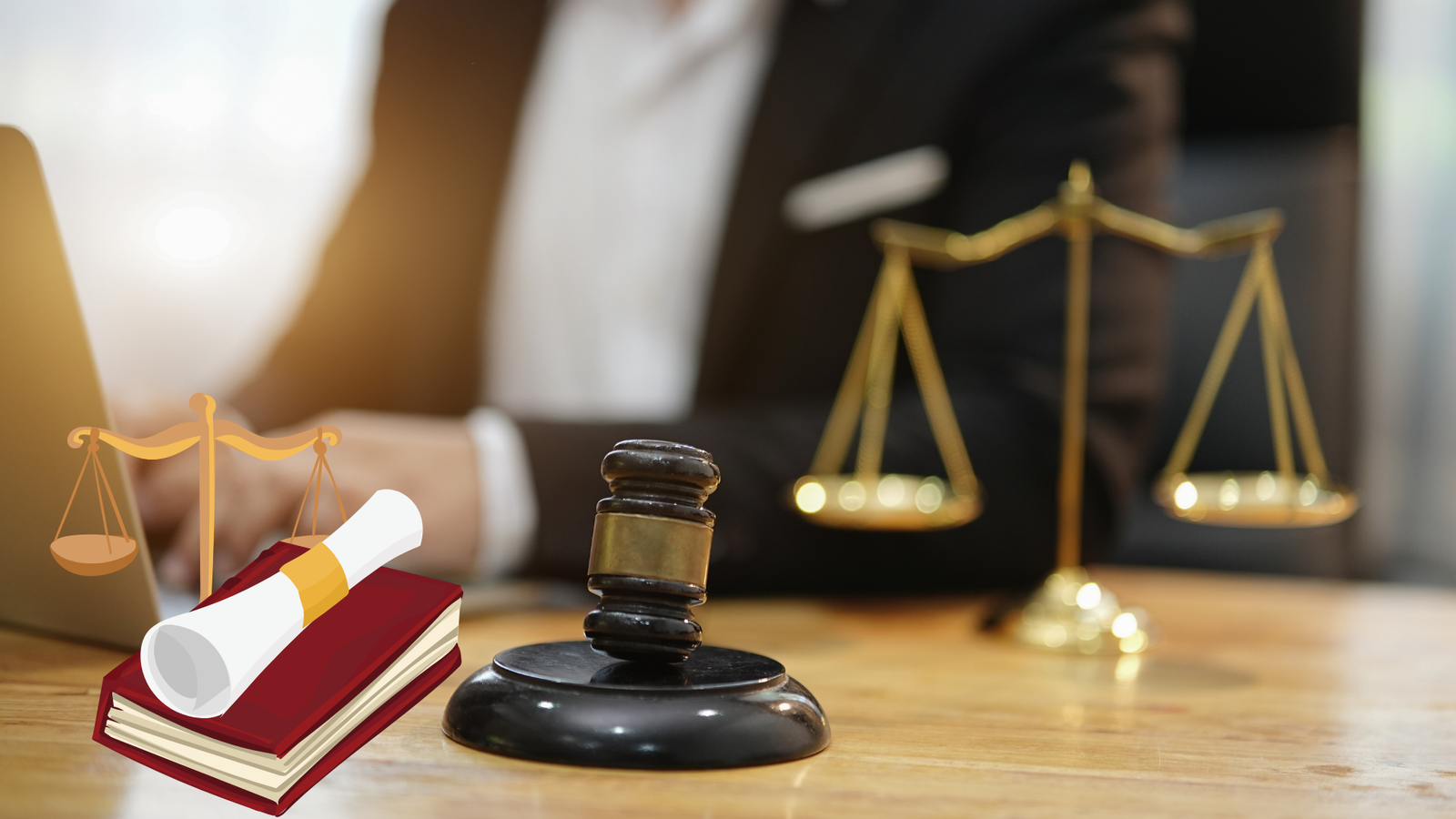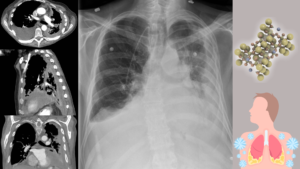How a Criminal Defense Lawyer Can Protect Your Rights An In-Depth Guide
8 min readAccording to the Bureau of Justice Statistics, crimes like violent victimizations, assault, robbery and theft all went down in 2023 compared to 2022. But even with this decline, the rate of violent victimization excluding simple assault for males is still at 6.9 per 1,000 in 2023.The criminal justice system in the United States operates on key principles such as due process, equal protection under the law, and constitutional rights. If you’re facing criminal charges, you have the right to get legal representation.
According to criminal defense lawyer David Rudolf, you need a competent attorney to guide you and protect your rights. Your attorney will make sure you’ll have a fair hearing and you will not be wrongly convicted or unfairly punished.
Let’s learn how a criminal defense lawyer can be of help to you as you face a criminal charge.

Introduction to Criminal Defense Laws.
Criminal defense law encompasses the legal protections provided to individuals accused of committing a crime. Criminal defense attorneys ensure that the rights of defendants are preserved throughout the judicial process. Key elements include:
- Presumption of Innocence: Every defendant is presumed innocent until proven guilty.
- Legal Representation: Defendants have the right to legal counsel, guaranteed by the Sixth Amendment.
- Due Process: Ensures fair treatment through the judicial system.
- Defense Strategies: Includes tactics like challenging evidence, alibi defense, and procedural defenses.
Criminal defense law is rooted in constitutional rights aiming to balance state power and individual freedom
Read: taking-action-against-acts-of-workplace-violence/
Provide Guidance & Protect Your Rights
When looking for a criminal defense attorney, one of the main things you need to look at is their experience. It is better to hire a lawyer who has represented clients for several years. Lawyers with experience know how to deal with the criminal justice system and they can protect your rights or negotiate for a lesser sentence for you.
You also need to find a lawyer who focuses on certain areas of criminal law. For example, you are charged with carrying a knife in New York. You should find a lawyer who knows New York knife laws. Bear in mind that under these laws, even selling knives to people aged below 18 can already constitute a misdemeanor.
Your criminal defense lawyer understands the charges brought against you and the potential consequences you might face. Their experience in negotiating plea deals or presenting a compelling case at trial can make a significant difference in your case’s outcome.
Understanding Your Legal Rights
Understanding legal rights is essential in any criminal case. Key rights include:
- Right to Remain Silent: Protects individuals from self-incrimination.
- Right to an Attorney: Ensures legal representation during interrogations and trials.
- Right to a Fair Trial: Guarantees impartiality and fairness.
- Right to Due Process: Entitles individuals to all legal protections before deprivation of life, liberty, or property.
- Protection Against Unreasonable Searches and Seizures: Requires law enforcement to have warrants based on probable cause. “An informed defendant is a protected defendant.”
Knowing these rights aids in effectively collaborating with a criminal defense lawyer.
The Role of a Criminal Defense Lawyer
A criminal defense lawyer is essential in safeguarding the rights of the accused. They perform various critical functions:
- Legal Representation: Defending clients in court, ensuring they receive a fair trial.
- Case Analysis: Reviewing evidence, identifying weaknesses, and developing strong defense strategies.
- Negotiation: Engaging in plea bargaining to potentially reduce charges or penalties.
- Legal Advice: Providing clients with informed guidance regarding their case and legal options.
- Investigation: Conducting independent investigations to uncover exonerating evidence.
- Court Procedures: Filing necessary motions and navigating complex court protocols.
- Advocacy: Championing the client’s rights throughout the legal process, from arrest to trial.
Steps in the Criminal Defense Process
- Investigation and Arrest
- Law enforcement gathers evidence and arrests the suspect.
- Suspect is informed of their rights.
- Initial Appearance
- Defendant appears before a judge.
- Charges are formally read, bail is discussed.
- Arraignment
- Formal reading of charges.
- Defendant enters a plea.
- Pre-Trial Motions
- Attorneys file motions to dismiss, suppress evidence.
- Court hears arguments.
- Discovery
- Exchange of evidence between defense and prosecution.
- Depositions are taken.
- Plea Bargaining
- Negotiation for a lesser charge or sentence.
- Defendant may accept or reject the offer.
- Trial
- Presentation of evidence and witnesses.
- Jury deliberates, delivers a verdict.
- Sentencing
- Judge imposes penalties if found guilty.
- Factors considered include severity and criminal history.
- Appeal
- Filing for reconsideration if procedural errors occurred.
- Appellate court reviews case records.
How a Lawyer Builds a Defense Strategy
A defense lawyer commences by thoroughly reviewing the case details.
- Gathering Evidence: Collects witness statements, police reports, and forensic data.
- Client Interview: Understands the client’s perspective and any alibis.
- Legal Research: Investigates applicable statutes, case laws, and precedents.
- Developing Theories: Formulates potential defenses based on collected evidence.
- Pre-Trial Motions: Files motions to suppress evidence or dismiss charges.
- Consulting Experts: Engages forensic experts, investigators, and other specialists as necessary.
- Witness Preparation: Preps witnesses to provide consistent and credible testimony at trial.
Negotiating Plea Bargains
Negotiating plea bargains involves critical strategizing and a comprehensive understanding of the case. The criminal defense lawyer:
- Evaluates the strengths and weaknesses of the prosecution’s evidence.
- Identifies potential legal defenses and mitigating factors.
- Discusses the risks and benefits of a plea deal versus going to trial with the client.
- Engages in discussions with the prosecutor to negotiate a favorable deal.
- Seeks concessions such as reduced charges or lighter sentencing.
- Ensures that the client’s rights are upheld during negotiations.
- Advises the client on the implications of accepting a plea bargain.
Representation in Court
A criminal defense lawyer serves as the defendant’s advocate in court. They ensure that the defendant’s rights are protected throughout the legal process. Responsibilities include:
- Arguing motions to suppress evidence or dismiss charges.
- Cross-examining witnesses presented by the prosecution.
- Presenting evidence and witnesses for the defense.
- Challenging the prosecution’s case to create reasonable doubt.
- Providing closing arguments to consolidate the defense’s position.
A lawyer guides the defendant in making decisions such as whether to plead guilty, accept a plea bargain, or go to trial. This knowledgeable representation is crucial for navigating court procedures effectively.
Protection Against Unlawful Searches and Seizures
A criminal defense lawyer safeguards clients against unlawful searches and seizures. The Fourth Amendment guarantees this right, ensuring that evidence obtained improperly cannot be used in court.
How Lawyers Ensure Protection:
- Reviewing Search Warrants: Scrutinizing the validity of search warrants.
- Challenging Evidence: Filing motions to suppress illegally obtained evidence.
- Advising on Rights: Educating clients on their constitutional rights.
- Representation in Court: Presenting arguments against unlawful searches.
- Investigating Conduct: Examining the conduct of law enforcement officers.
Lawyers act as a buffer, protecting individuals from governmental overreach. Effective defense strategies rely on an intimate understanding of search and seizure laws.
Ensuring Fair Treatment During Interrogations
A criminal defense lawyer ensures that their clients are treated fairly during interrogations. Key aspects include:
- Advising Against Self-Incrimination: A lawyer informs the client of their right to remain silent, preventing self-incriminating statements.
- Presence During Questioning: The lawyer attends interrogations to monitor fairness and legality, ensuring compliance with legal standards.
- Objecting to Coercion: Defense attorneys identify and object to any coercive tactics used by law enforcement.
- Protecting Rights: They ensure that all constitutional rights, such as the right to counsel, are upheld throughout the process.
- Documenting Interactions: Lawyers meticulously document interactions to provide evidence of any misconduct.
Post-Trial Support and Appeals
Post-trial support involves:
- Filing Appeals: If a conviction occurs, a lawyer assists in filing an appeal to challenge the court’s decision.
- Legal Analysis: The lawyer reviews trial records for legal errors or unfair rulings that could justify an appeal.
- Brief Preparation: Drafting and submitting detailed briefs outlining the grounds for the appeal is crucial.
- Oral Arguments: Representing the client during appeal hearings, presenting oral arguments to appellate judges.
- Sentence Modification: They work on reducing sentences or obtaining parole if the appeal is not successful.
Case Studies: Successful Defenses
- Case Study 1: In a high-profile theft case, the defendant’s lawyer uncovered crucial surveillance footage proving the client was in a different location at the time of the crime. This evidence led to the charges being dropped.
- Case Study 2: A client facing serious drug charges was acquitted after their defense attorney demonstrated that law enforcement had conducted an unlawful search. Key evidence was suppressed, resulting in the dismissal of the case.
- Case Study 3: In an assault case, the defense lawyer successfully argued self-defense, presenting eyewitness testimony that corroborated the client’s version of events. The client was found not guilty.
Investigating the Case
To effectively defend you, criminal defense lawyers conduct thorough investigations into the details of your case. This process involves gathering evidence, interviewing witnesses, and reviewing any available documentation related to the charges against you.
During the investigation phase, your criminal defense lawyer will scrutinize the prosecution’s case to identify any weaknesses or inconsistencies. He or she will also assess the credibility of witnesses and examine the legality of any evidence presented against you.
By thoroughly investigating the case, your lawyer can anticipate potential challenges and prepare effective counterarguments.
Common Misconceptions About Criminal Defense Lawyers
- Guilty Clients Only: Many believe defense lawyers only represent guilty individuals. They ensure a fair trial for everyone, regardless of guilt.
- Unethical Practices: It is often assumed that defense lawyers engage in unethical practices. They are bound by a strict code of ethics.
- Too Expensive: Some think hiring a defense lawyer is unaffordable. Many offer payment plans or sliding scale fees.
- Outcome Guarantee: There is a misconception that defense lawyers can guarantee outcomes. They cannot; they provide the best possible defense.
- Public Defenders Are Inadequate: Public defenders are often seen as less competent. They are experienced and skilled professionals.
Read:increase-the-chances-of-a-successful-truck-accident-case-with-these-tips/
Choosing the Right Criminal Defense Lawyer for Your Case
Selecting a criminal defense lawyer involves several critical considerations:
- Experience and Specialization
- Verify their experience with similar cases.
- Check for specialization in criminal defense.
- Reputation and Track Record
- Research their reputation in legal circles.
- Examine their history of case outcomes.
- Communication Skills
- Ensure clear and prompt communication.
- Look for a lawyer who explains legal terms in simple language.
- Fees and Billing
- Understand their fee structure.
- Clarify any hidden charges.
- Availability
- Confirm their availability for your case.
- Assess their willingness to dedicate time to your defense.
Considering these factors can significantly impact the defense’s effectiveness.
Conclusion and Key Takeaways
A criminal defense lawyer plays a crucial role in safeguarding an individual’s legal rights throughout the legal process.
- Understanding the Charges: Criminal defense lawyers clarify the charges and potential penalties.
- Building a Strong Defense: They gather evidence, interview witnesses, and develop strategies to challenge the prosecution’s case.
- Negotiations: Skilled in negotiating plea deals that may reduce charges or penalties.
- Court Representation: Expertise in courtroom procedures and legal arguments to ensure a fair trial.
- Legal Advice: Provide informed counsel on the best course of action tailored to the specific circumstances of the case.
Have more wellness guidance here




